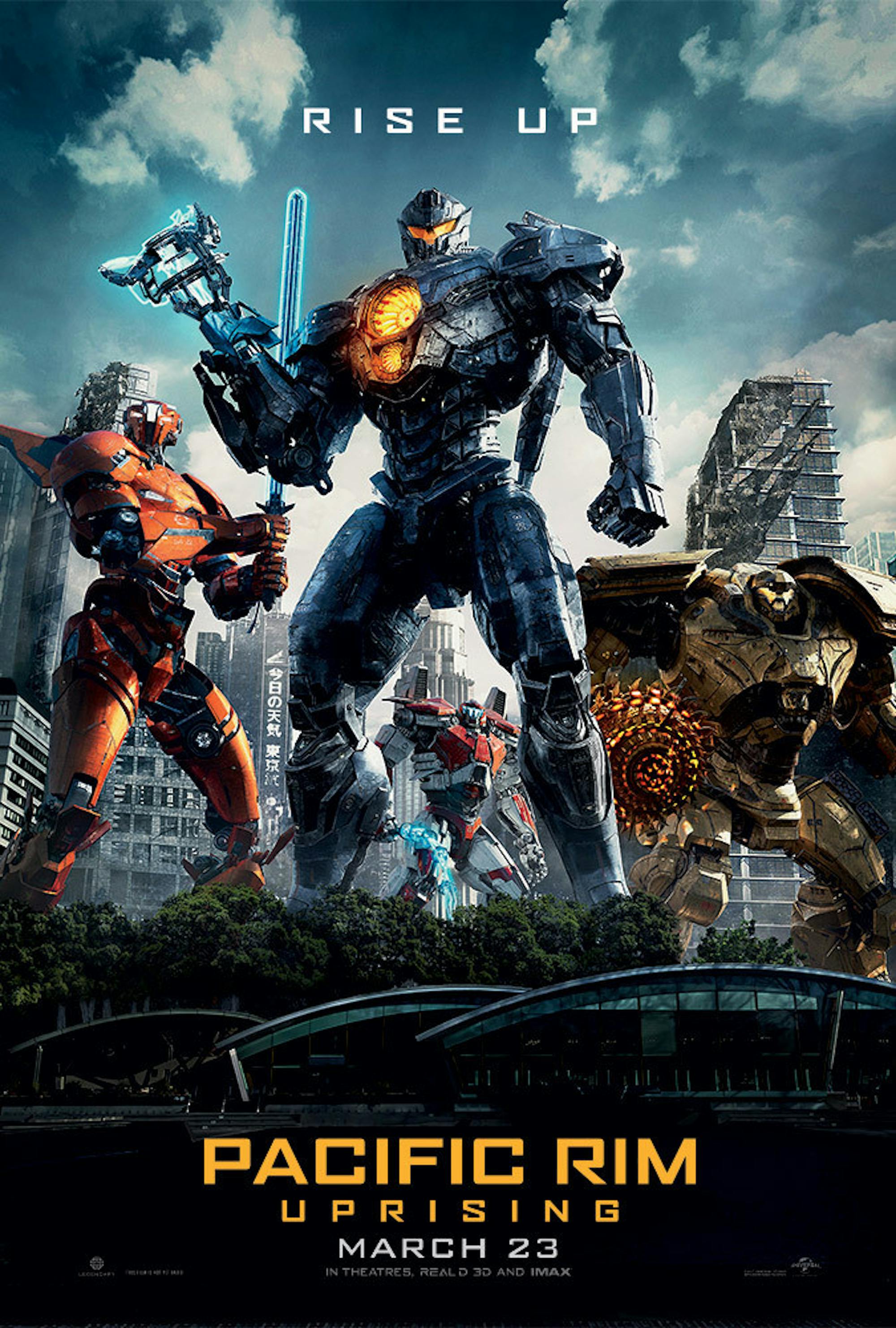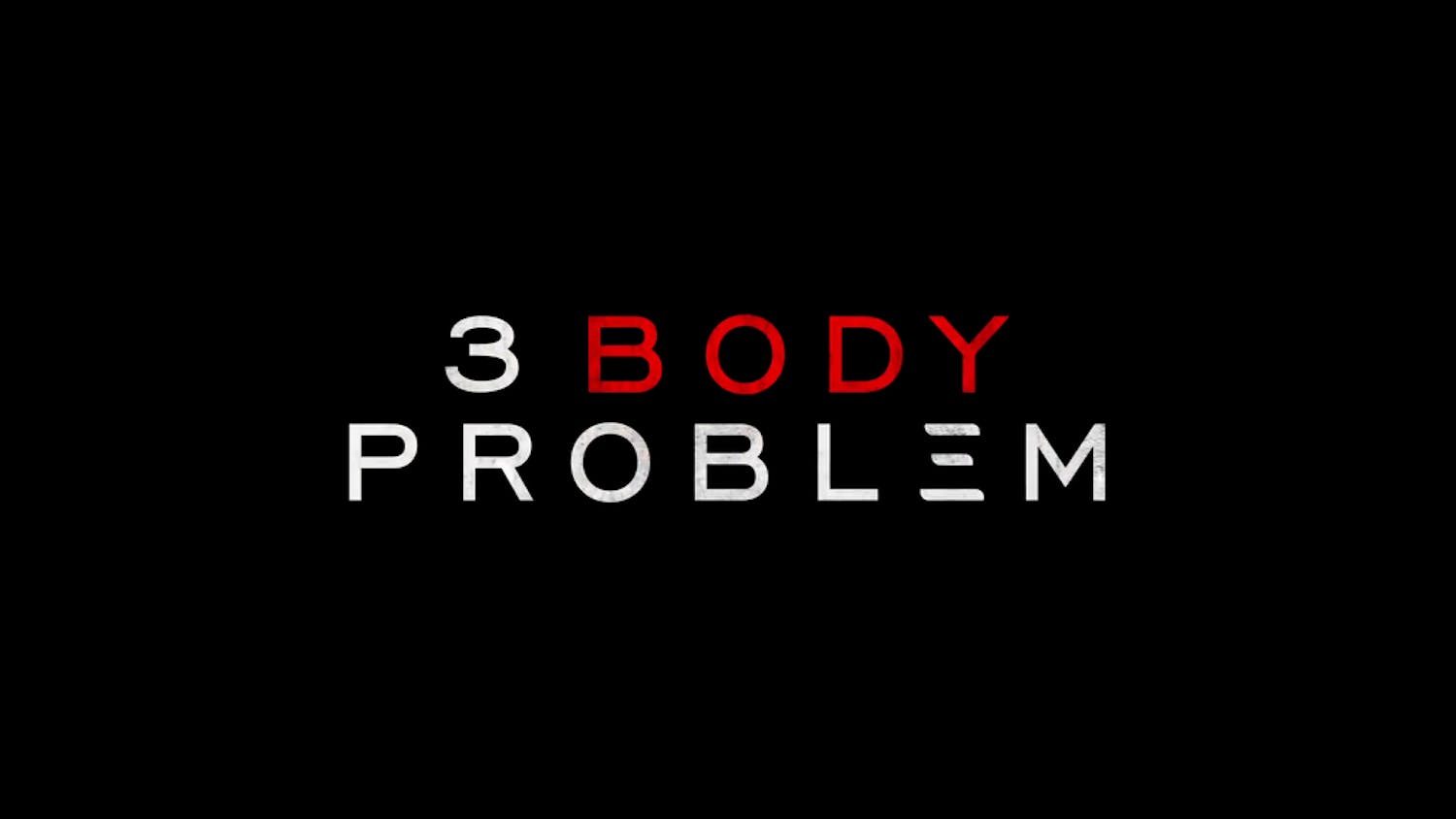"Pacific Rim: Uprising" (2018), the directorial debut of Stephen S. DeKnight, is not an objectively great film. It’s a movie that features robots repeatedly bashing themselves against large monsters sent by an alien species from within the earth. It’s a sequel to Guillermo del Toro's 2013 movie that features Idris Elba giving perhaps the most cliched movie speech ever produced. There are no magnificent performances (though John Boyega brings his charisma over from Star Wars in the lead role of Jake Pentecost) and no essential human themes (except, maybe, that robots are really cool). Even the CGI won’t win any awards, as after a while the robot-on-monster collisions seem to blend together. It is also, however, really fun to watch.
Once the viewer stumbles past the first mentions of “drift-compatible” and “rare-earth metals” with light embarrassment and little fanfare, it’s hard not to cheer along as the human’s robot bops a tall monster on the head with such force that the theater’s speakers seem ready to blow out. Even the lines that might normally make you giggle like, “This is our time,” and, “We are the only chance for humanity,” instead induce a solid nod of solidarity among any viewer who is pro-human and anti-giant monster.
Sure, Scott Eastwood acts as if his dad is standing behind him whispering his lines in his ears, and yeah, revelatory exclamations about laser swords might induce a cringe or two, but the movie is true to what it is and claims to be nothing more. That can be such a relief in 2018 cinema, when it seems like every movie ("Three Billboards," anyone?) wants to make comprehensive statements about everything.
It’s found the perfect equilibrium for a big, dumb movie, something that relatively few blockbusters have. Gone are the self-serious attitudes and semi-problematic dialogue of the "Transformers" series, replaced with a giddy, boyish charm — as if the filmmakers are saying, “Look at this! We got Hollywood to fund a $250 million movie about robots and monsters! Can you believe that? We’re not sure we can.”
A major twist in this iteration is that for a brief period, one of the robots fights a 'different' robot, a gigantic deviation from the trusty robot vs. monster formula. The plot is one of contrived convenience, but the filmmakers know the audience won’t mind as long as it all comes together at the end. Each dialogue-filled scene knows that the exposition it wants to provide would probably sound dumb anyway and just skips it, instead serving as interludes between the fights. These battles take place across the world, from Sydney, Australia to Siberia, to a final showdown near Mt. Fuji in Japan. Sure, it’s a shameless move to try to pull in the international box office it so desperately needs to not lose copious amounts of money, but if one’s made it this far into the movie, a survey of different countries for the robots to destroy can be nice.
There’s a refreshing charm in a movie not trying so hard. This is a movie that features Charlie Day from "It’s Always Sunny in Philadelphia" (2005–) launching an apocalypse because he falls for a bulbous alien! Why not? It’s also, more importantly, an effortlessly diverse entry in the whitewashed realm of action blockbusters. There’s really nothing to hate about this movie, except for the fact that it is the kind of movie that is supposed to be hated. So to all the folks out there who like to use the term 'cinema' and spend their days trying to talk like an Aaron Sorkin character, you should let your guard down and watch "Pacific Rim: Uprising." You actually might not be disappointed.
'Pacific Rim: Uprising' is dumb fun

A promotional poster for 'Pacific Rim: Uprising' is pictured.
Summary
3 Stars





